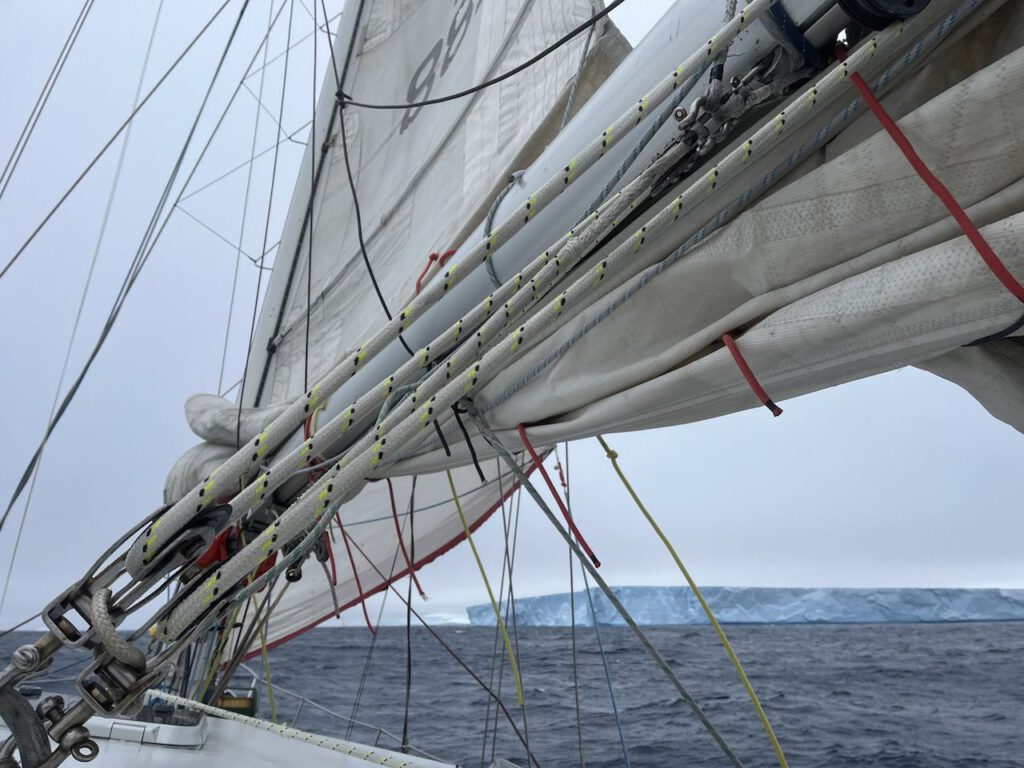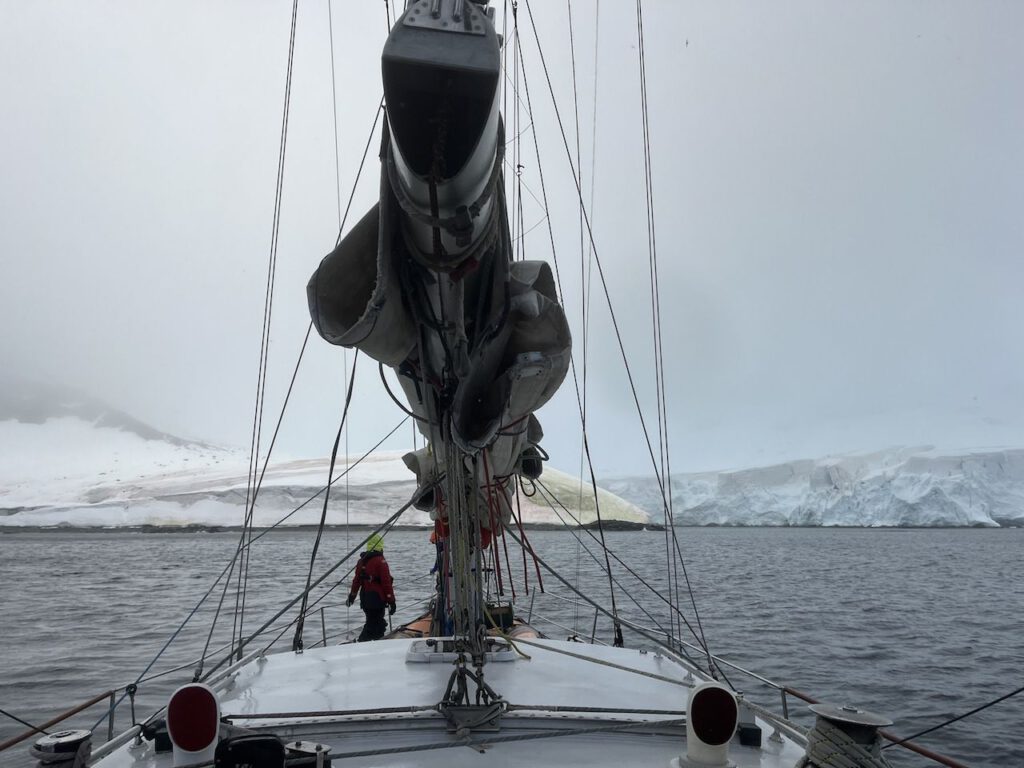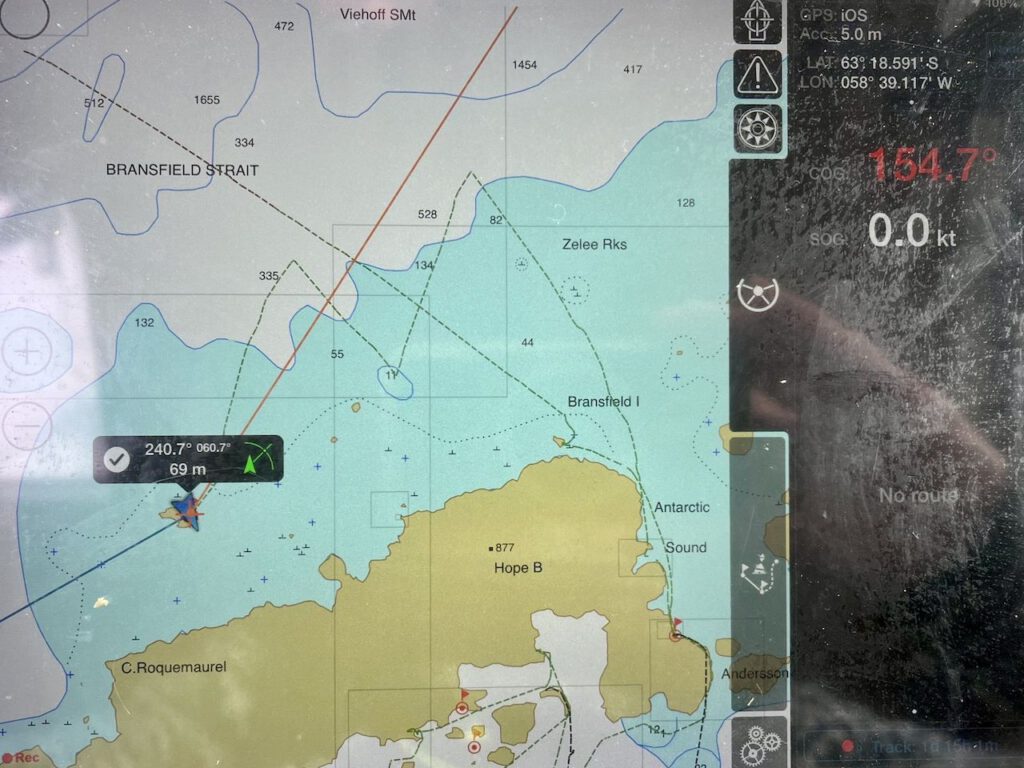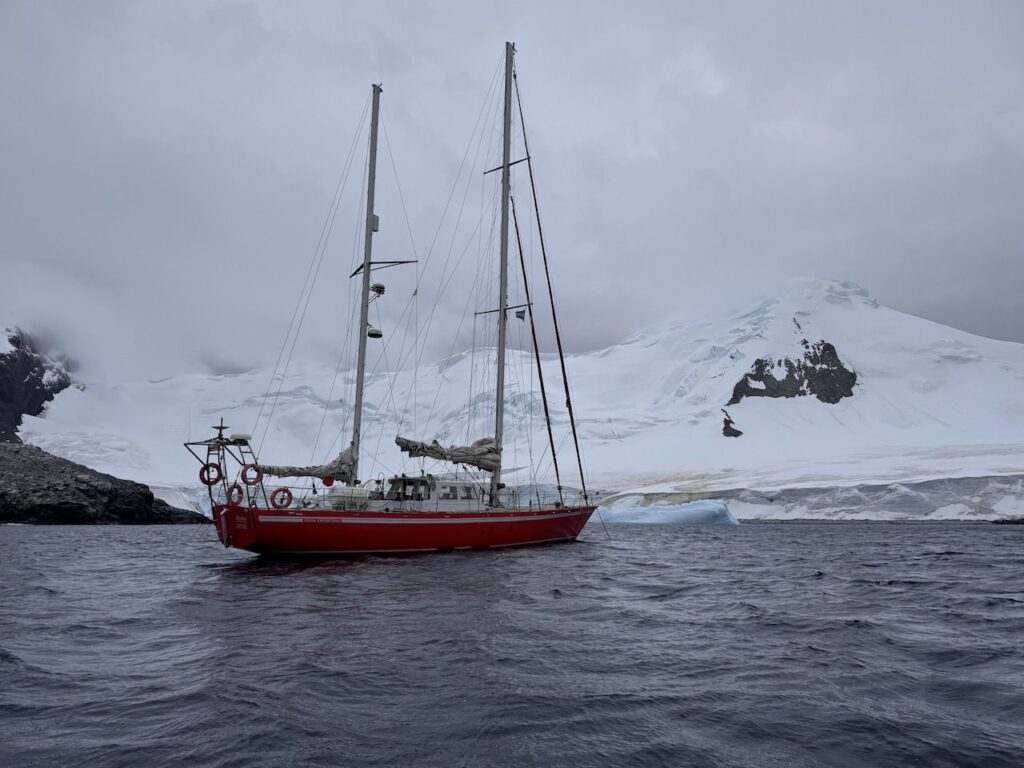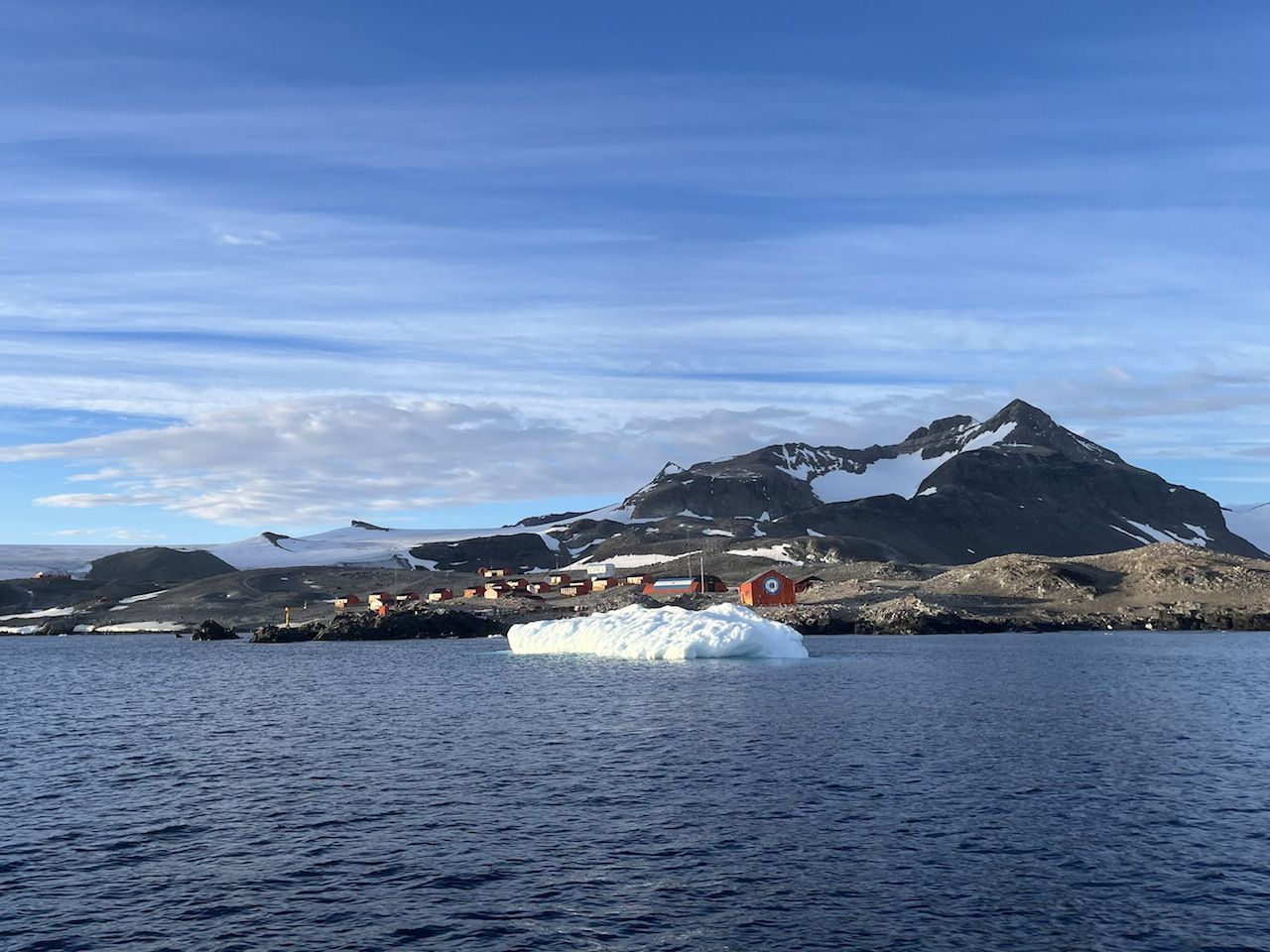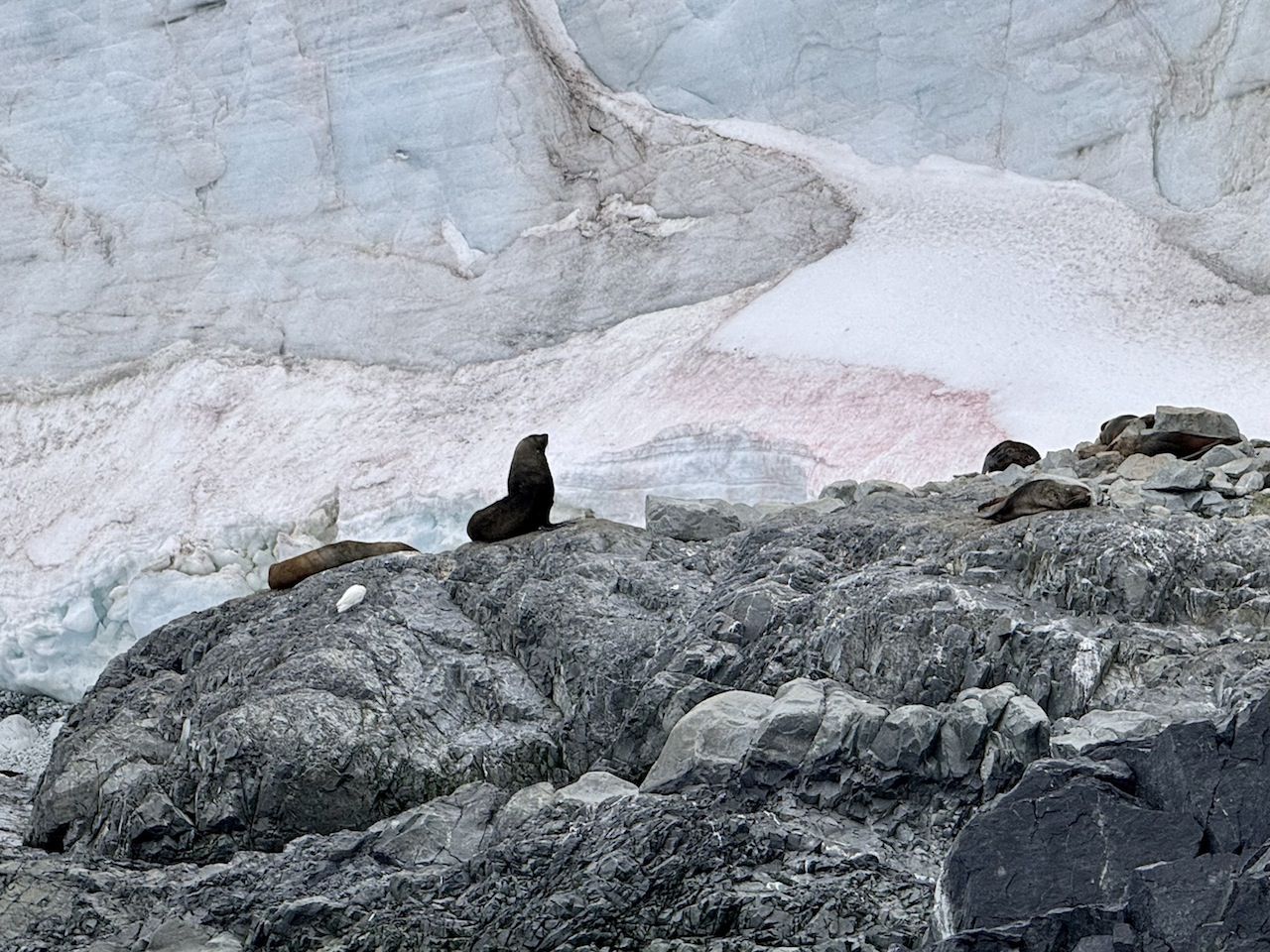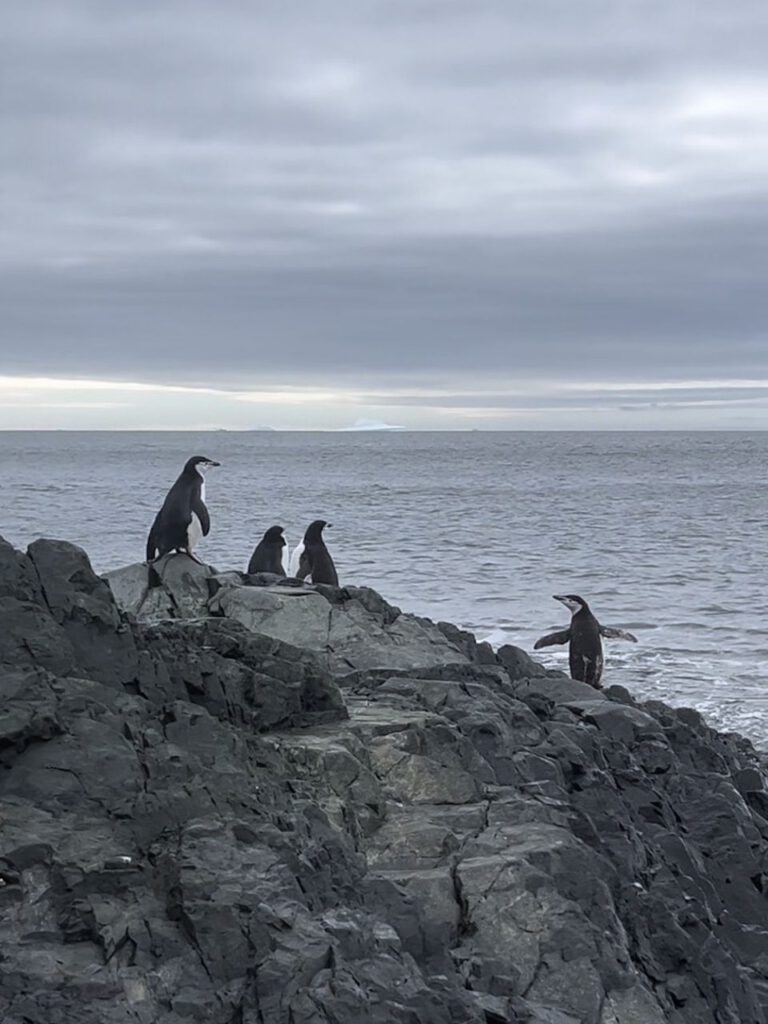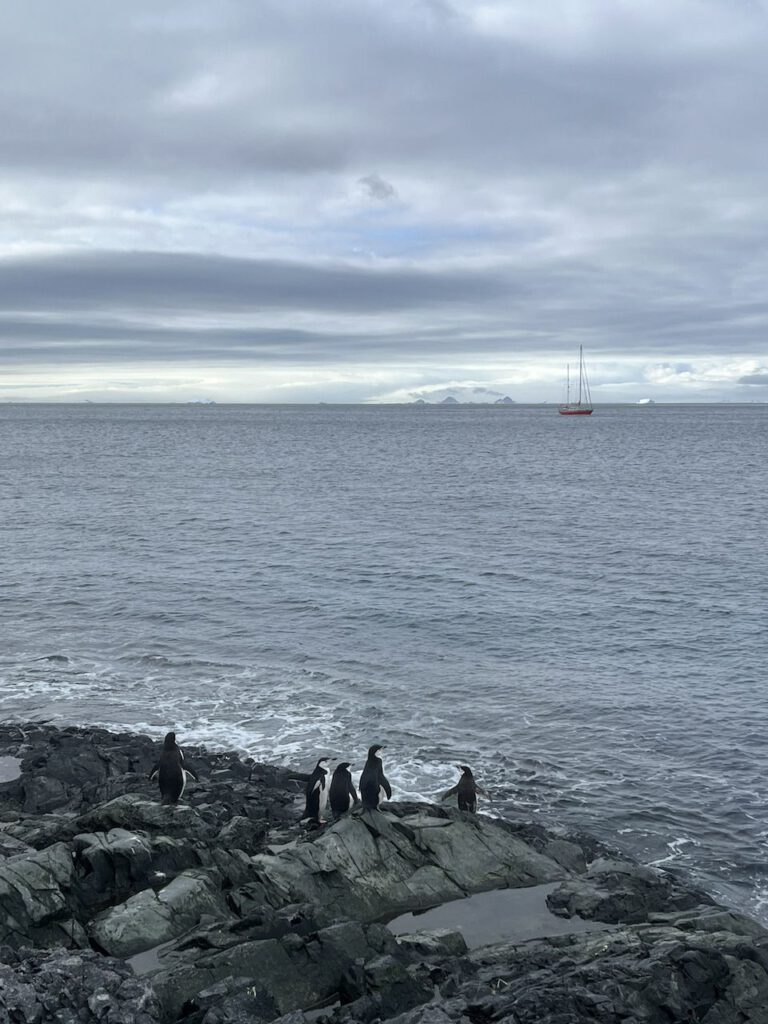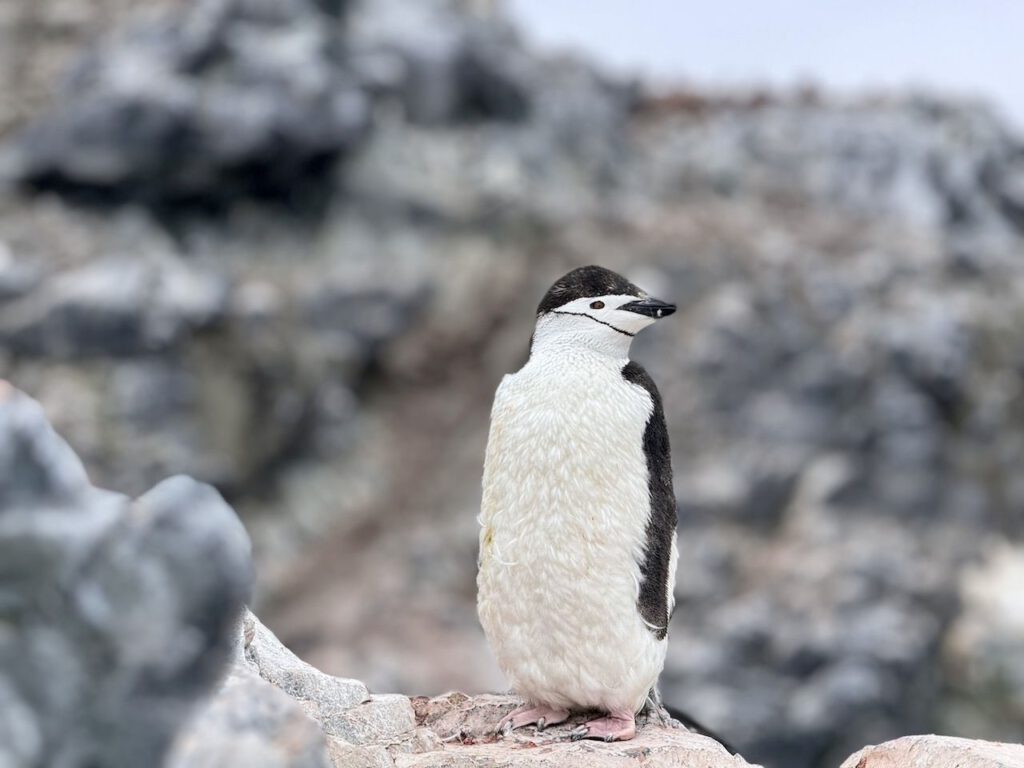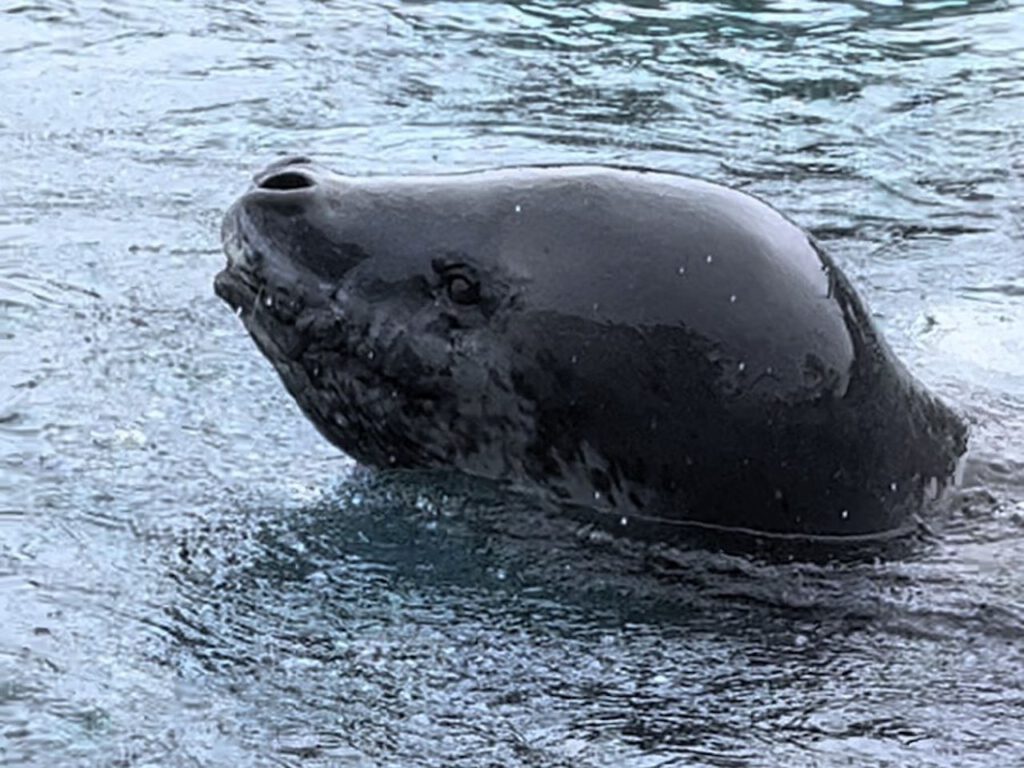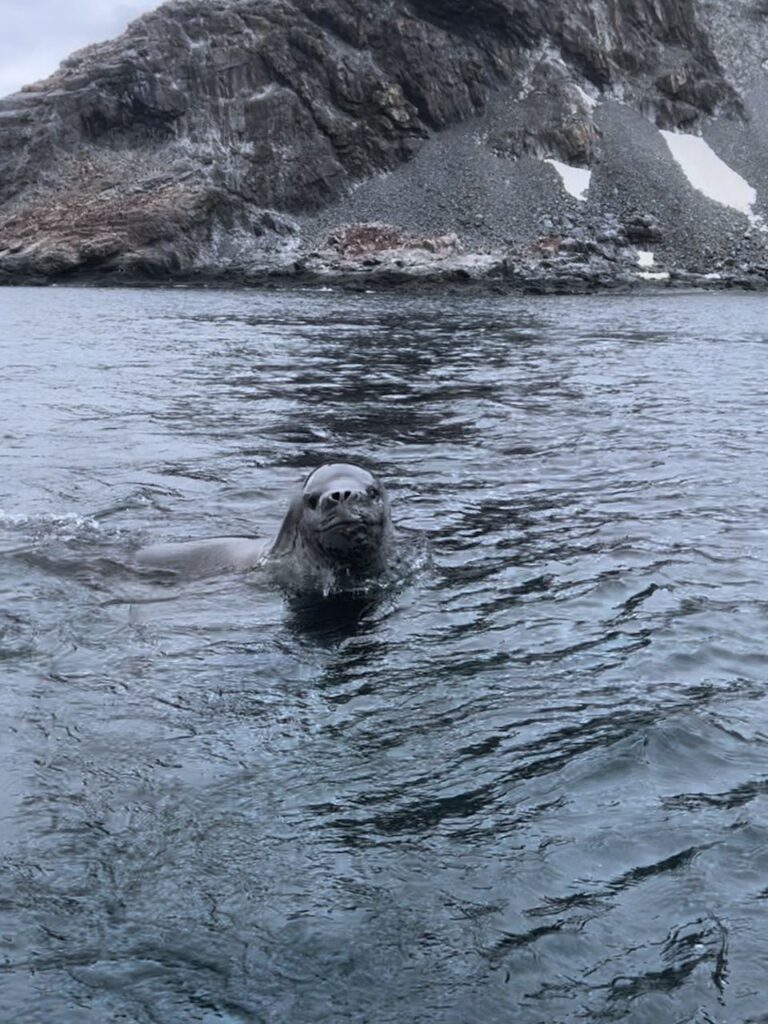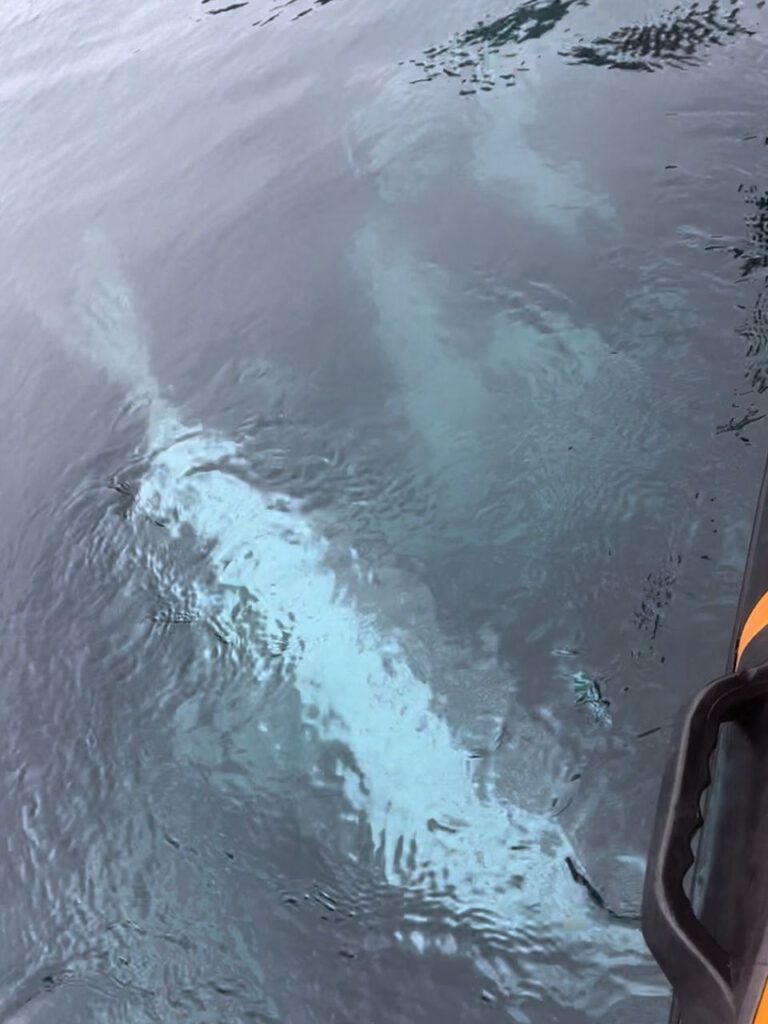We have now been traveling on the west side of the Antarctic Peninsula for three days. And – compared to the east side – in a different world. Both the landscape and the weather have changed.
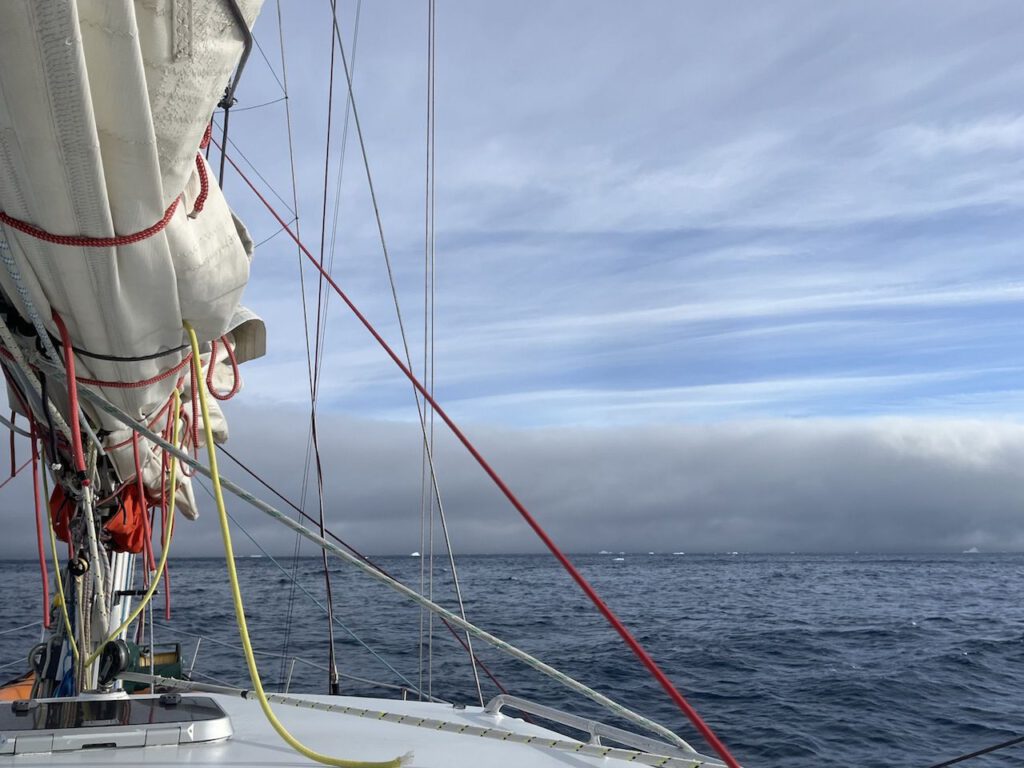
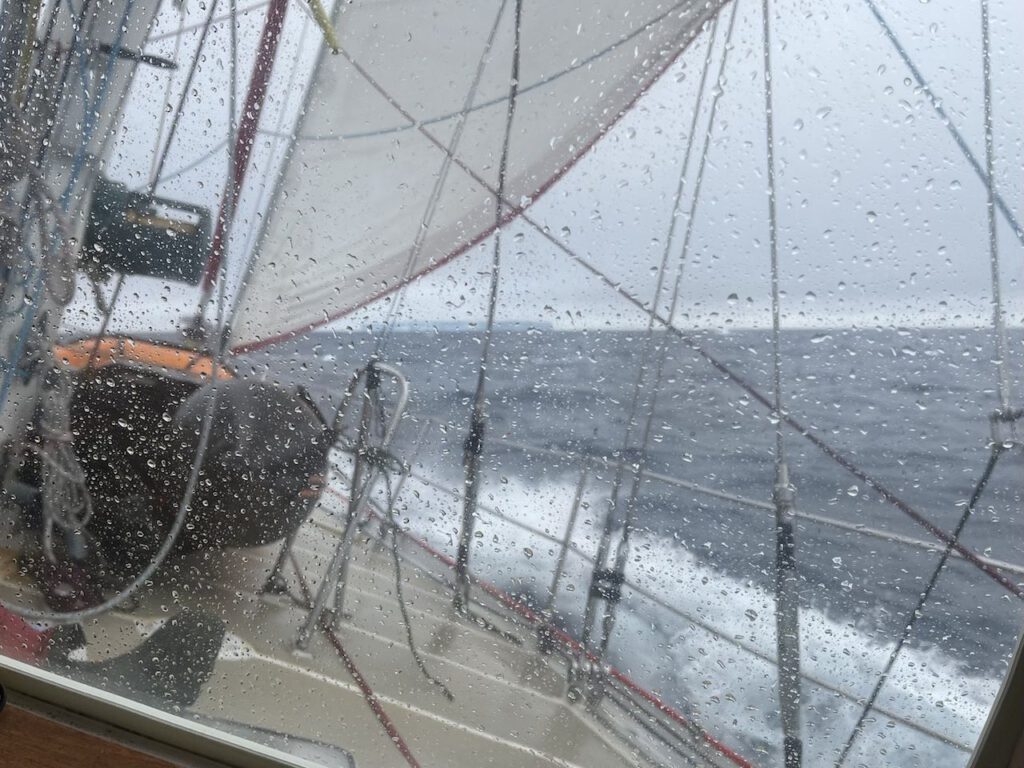
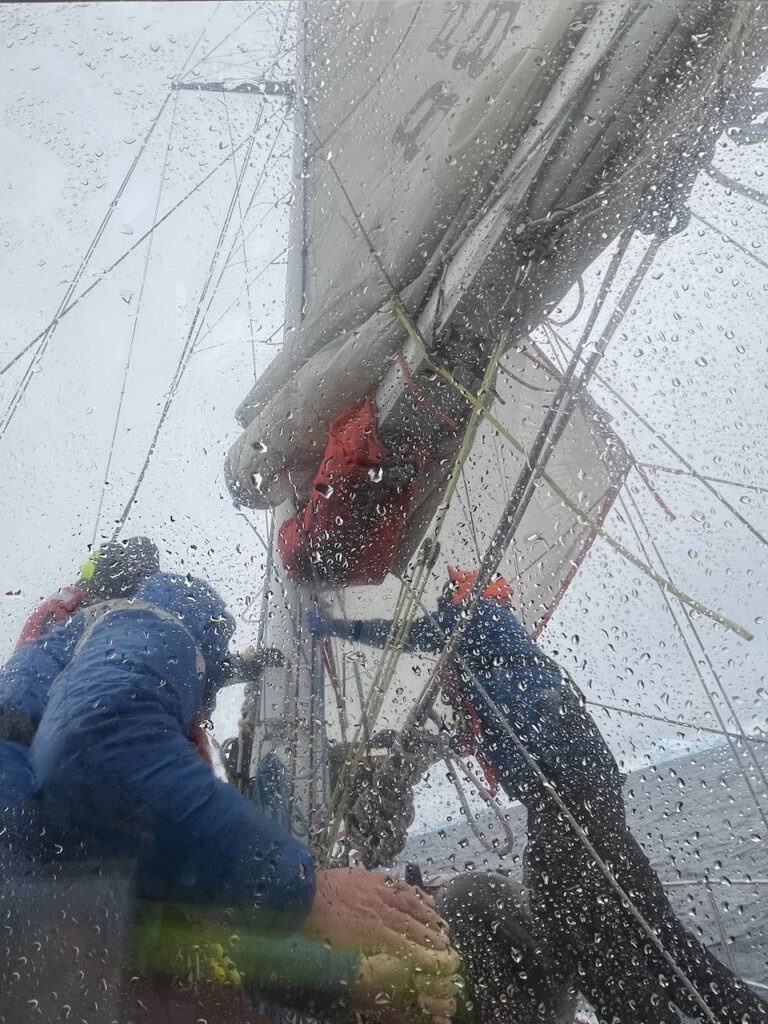
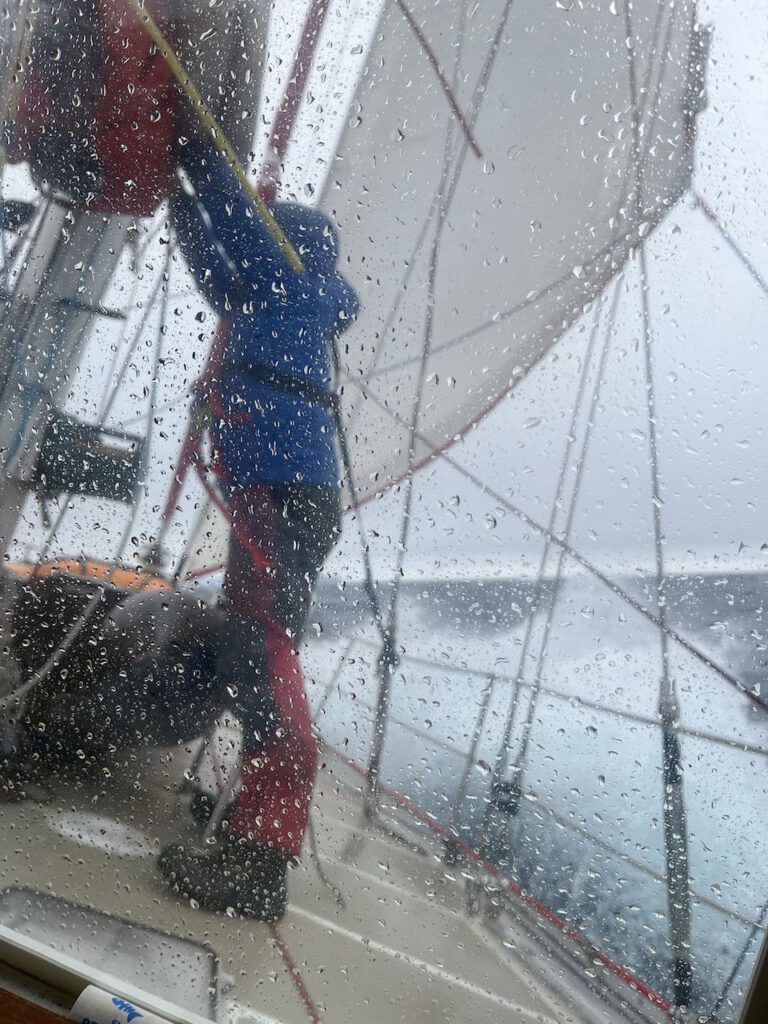
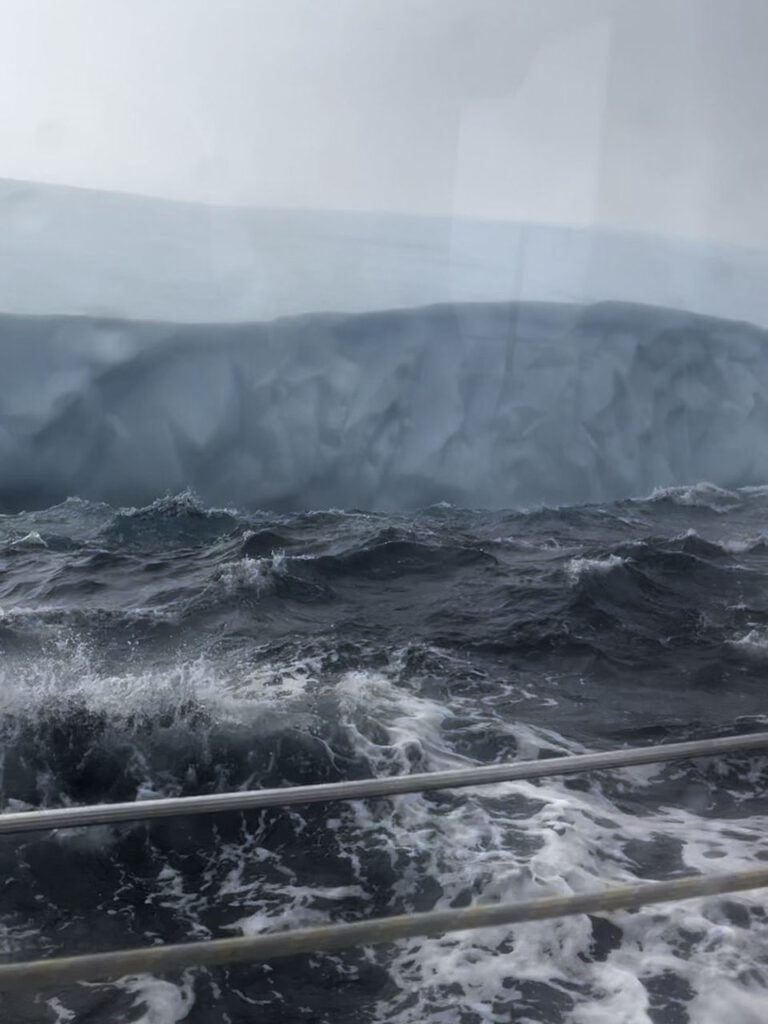
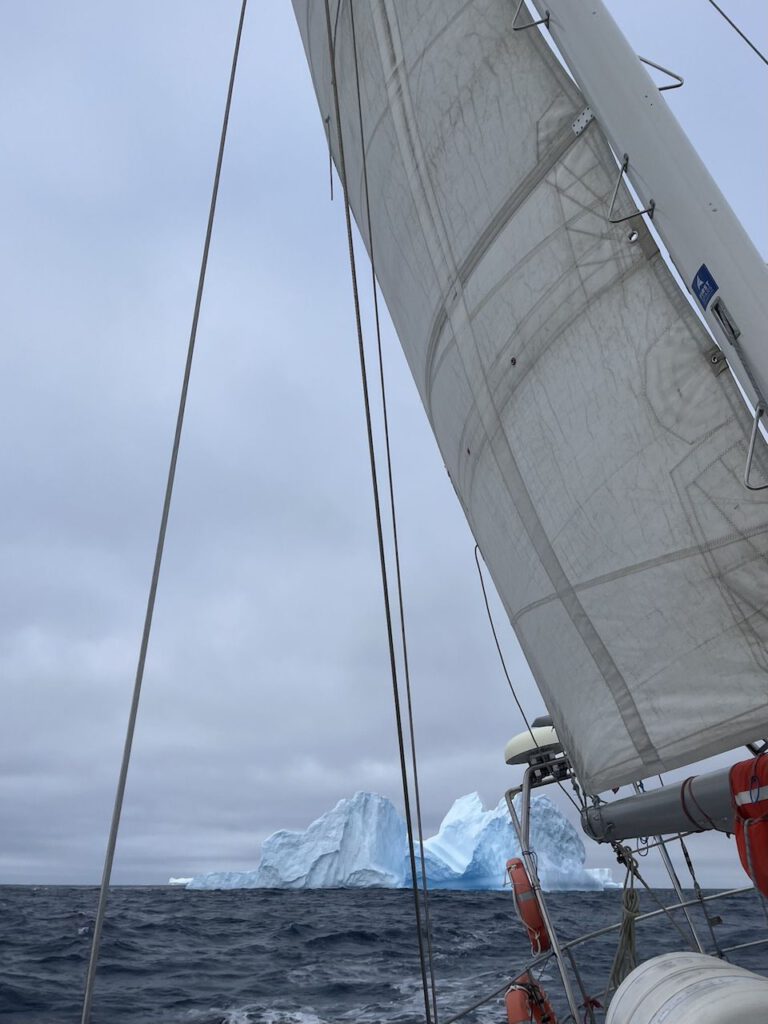
After starting on Tuesday morning in Hope Bay, Antarctic Sound, we sailed through the day and night. In the Bransfield Strait it has become gray, cold and wet, and it keeps raining. Wind around 20-25 knots from the SW. We initially set course for the South Shetlands, then cross to the south. Our destination, Astrolabe Island, emerges from the fog at dawn. A colony of chinstrap penguins nests here. Landing proves to be difficult. We can’t climb more than a few meters up the black, rocky coast: on the left, a group of fur seals are dozing on the ice, on the right, the penguins are in charge. The weather is so uncomfortable that even they stand doubtfully on the shore and seem to be delaying the step of diving into the ocean for as long as possible. We decide to explore the coast from the dinghy. A whale passes nearby and as it dives we are visited by a leopard seal. Curious, he makes contact and seems very interested in the orange rubber thingy we are sitting in. It follows us, dives down again and again and suddenly reappears next to the boat or underneath it. It is incredibly fast and easy to observe in the clear water. Up close, it looks imposing, its head and mouth huge, no longer as friendly and smiling as the ones we met slumbering peacefully on an ice floe. We feel a little queasy, the thought of a clash of teeth and rubber with an uncertain outcome makes us reach for our paddles, at least as a precaution. This mutual encounter lasts more than half an hour before we retreat to the safety of the Selma.
